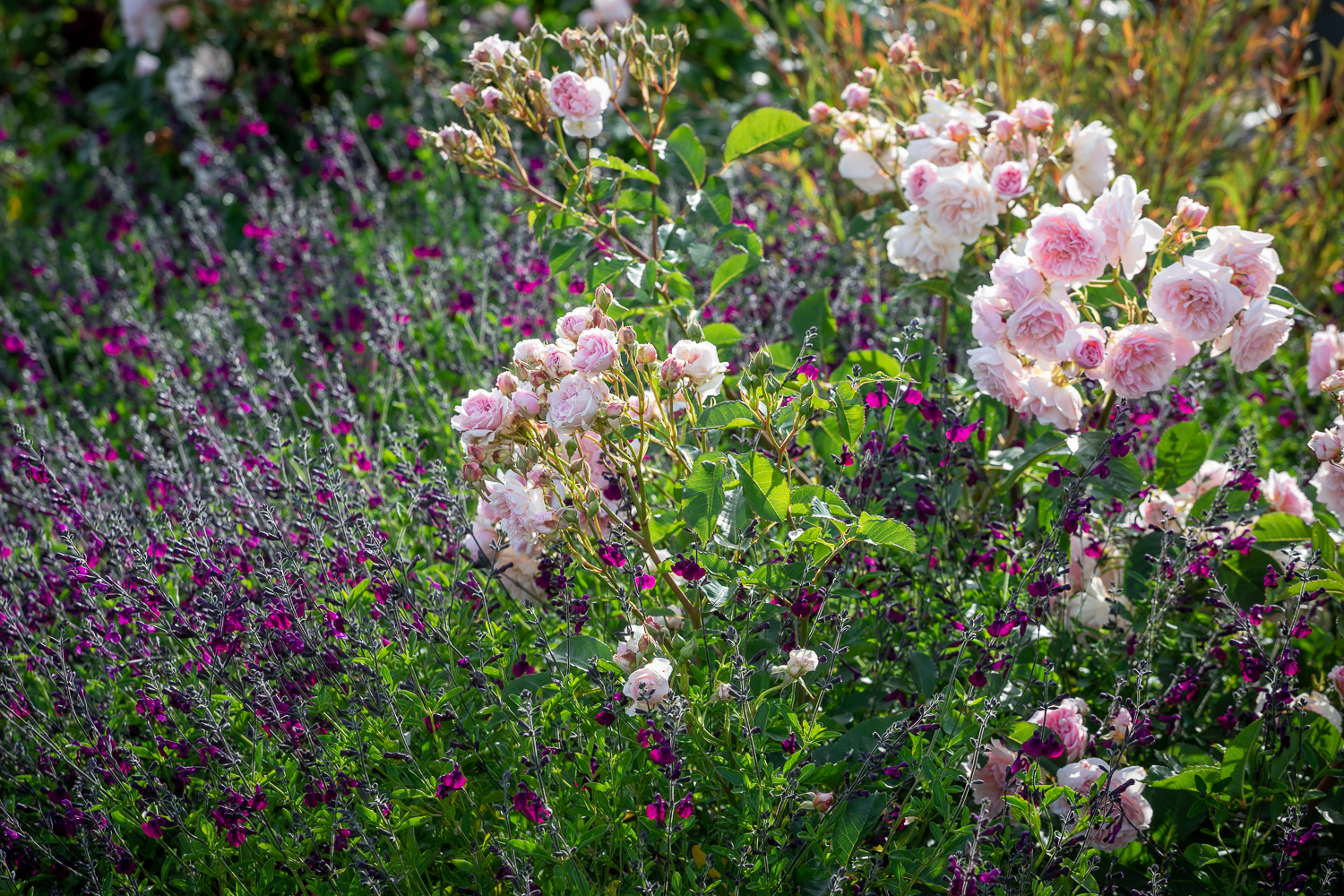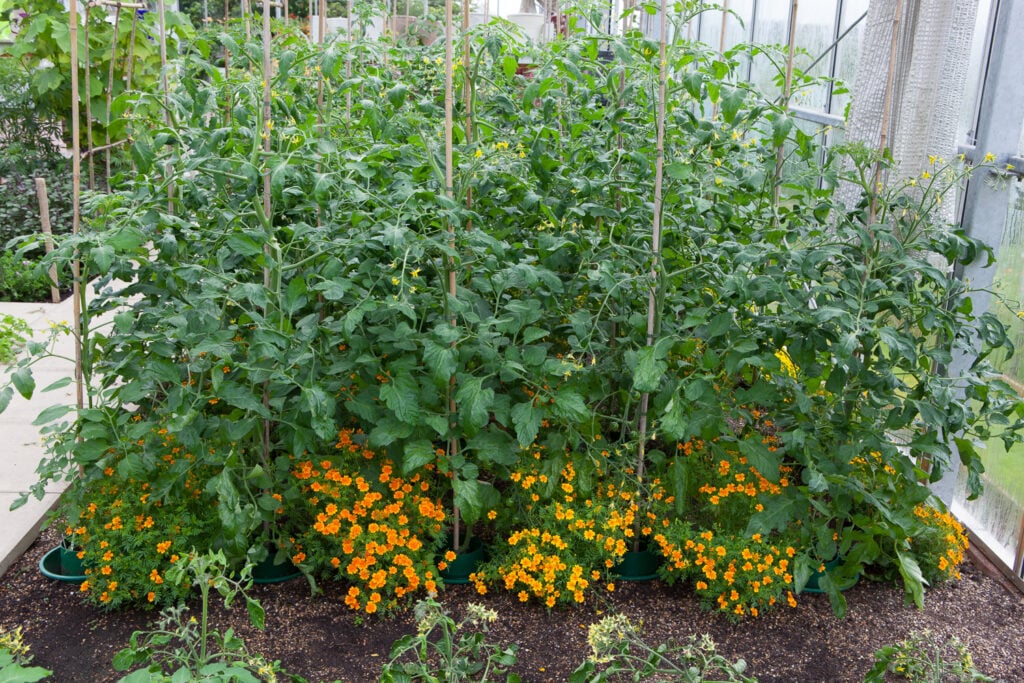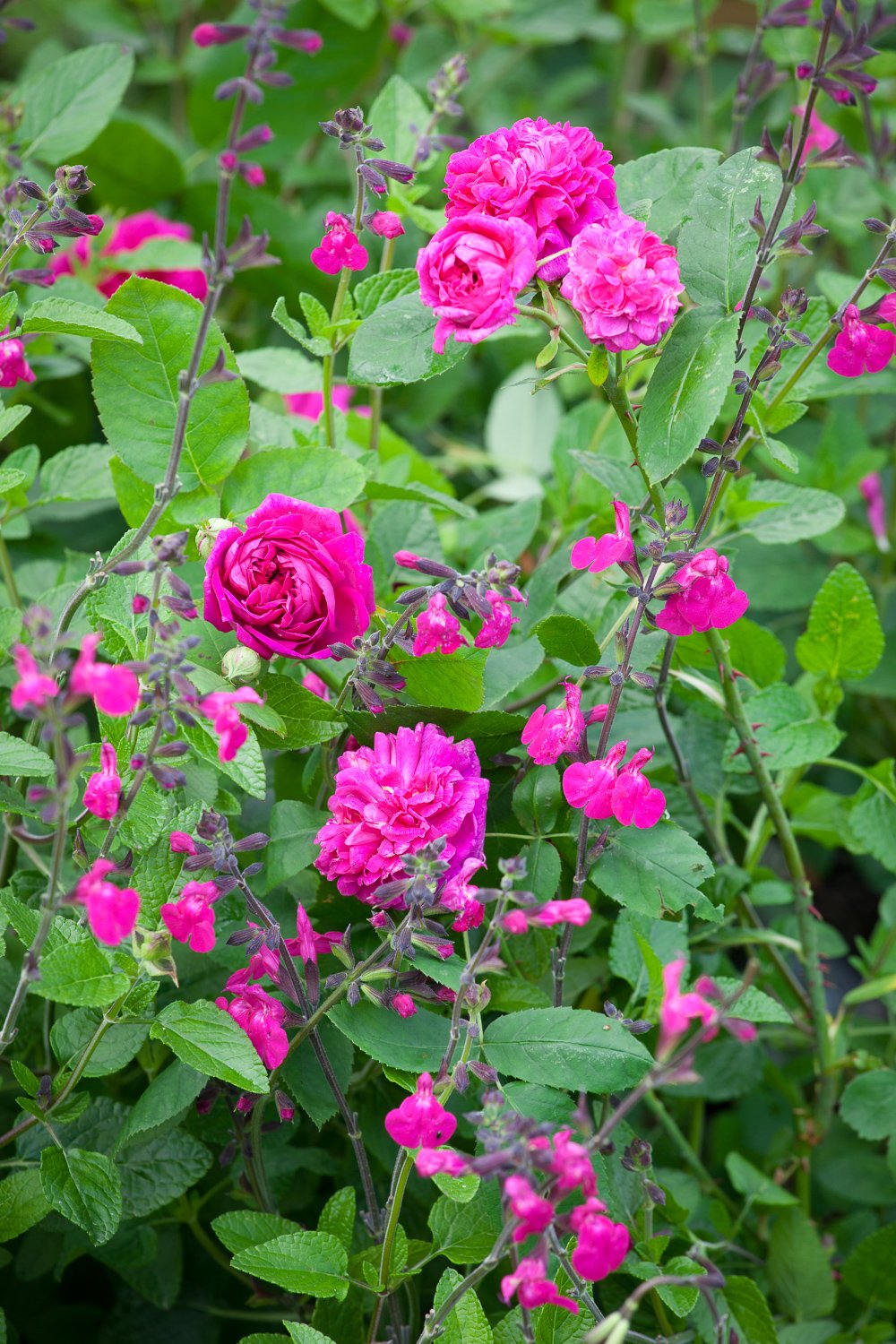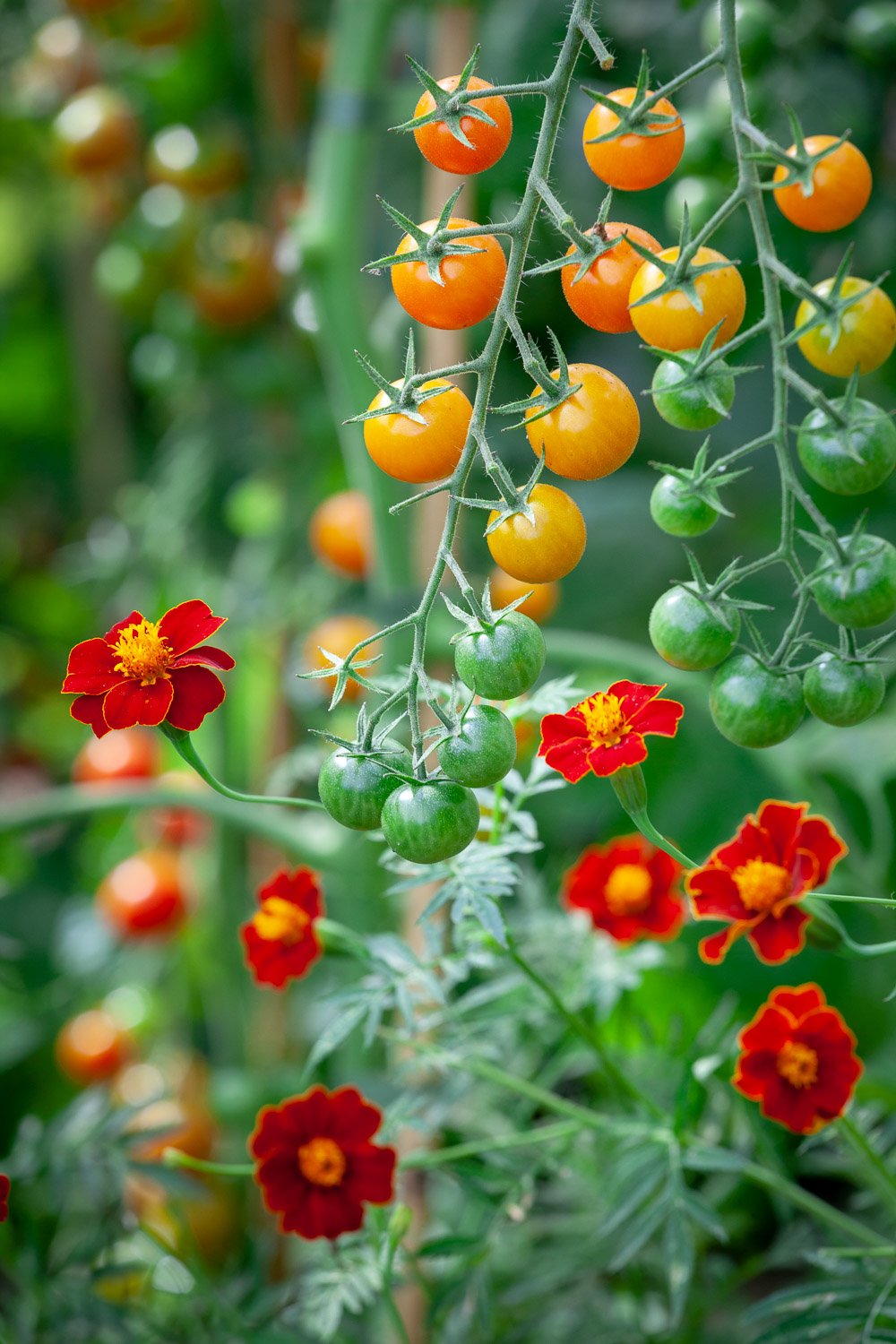Sarah Raven shares her top tips on effective companion planting

All photographs © Jonathan Buckley
Companion plants work in perfect partnership to control pests, reduce infection, or encourage a higher yield.
Many professional flower and vegetable gardeners will have stories of successful partnerships between plants, from tagetes protecting tomatoes from whitefly to summer savory helping to prevent blackfly on broad beans.
Sarah Raven, gardening expert shares her top tips on what we could all be doing this year.
Here are some of our tried and tested combinations to try in your garden. Grow them from seed to take your kitchen garden, flower beds, or vegetable patch to the next level.
Salvias and roses
Salvias and roses are a very beneficial planting duo. The sulphur in the salvia’s scent profile means that when they warm up, they release a natural fungicide, which keeps roses super strong and healthy, and mildew and blackspot free.
Underplanting with salvias is a great organic gardening method, which allows you to forgo pesticides and chemicals.
It’s best to grow roses in a sunny spot as fungal spores rely on moisture to germinate, meaning shade could speed up the infection, which is potentially lethal for roses.
Housekeeping is also essential. If you spot the signs of blackspot, clear anyway any dead leaves which might work as a natural host for harmful spores.
- Rosa ‘Rhapsody in Blue’ = ‘Frantasia’ AGM with Salvia × jamensis ‘Nachtvlinder’ (sage)
- Rose de Rescht (Shrub Rose) syn. R. ‘De Resht’ with Salvia microphylla ‘Cerro Potosí’ (Baby sage)
- Tagetes linnaeus growing with tomatoes in the greenhouse. African Marigold
The protective properties of tagetes
If your garden is prone to whitefly and aphids, tagetes (part of the marigold family), can help to keep infestations at bay.
Tagetes emit a chemical called ‘limonene’, which works as a very strong repellent against flying insects and will help protect crops, fruits, and vegetables from pests. This method is particularly effective in glasshouses. You can also buy tabs of the limonene in isolation, which is naturally extracted from the tagetes and works as an effective deterrent.
This is also a great plant for killing perennial weeds and harmful insects too. The tagetes secrete a chemical through their roots which has a herbicidal effect and works well on garden weeds such as ivy. Although the results won’t be visible immediately, and the process will have to be repeated year after year, it will gradually begin to work as a great alternative to traditional chemical weed killers.

Companion planting of tomatoes with Tagetes tenuifolia ‘Tangering Gem’ and ‘Lemon Gem’ in the greenhouse at Perch Hill. Marigolds
Other combinations to try
Greek basil has a distinctive lemony scent which is a good deterrent for mosquitos, due to its citronella smell. Widely used as a deterrent in vegetable plots in the Mediterranean, where it’s used to underplant aubergines and peppers. The scent naturally draws in bees, butterflies, and hoverflies with its tiny flowers and is great for pollination.
At Sarah’s Perch Hill Garden in East Sussex, the tomatoes are underplanted with a mix of Tagetes patula ‘Linnaeus Burning Embers’, basil, and Tagetes tenuifoila ‘Red Gem’. It’s important to space your plants well to prevent choking the base of the plant, but this combination will produce winning tomatoes.
For more top tips and helpful information on companion planting, visit: https://www.sarahraven.com/articles/companion-planting
Or explore our favourite seeds which make the perfect pairs: https://www.sarahraven.com/seeds/companion-planting-seeds
A new partnership
We are delighted to be partnering with gardening expert, Sarah Raven in 2023. They will be helping to encourage individuals who are passionate about their gardens, to open in aid of the National Garden Scheme and to raise funds for vital nursing and health charities. You can read more about the partnership and exclusive National Garden Scheme supporters discount here.





















